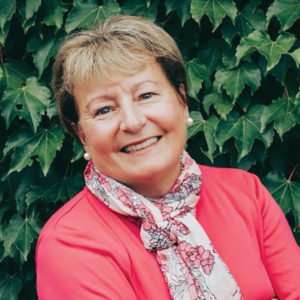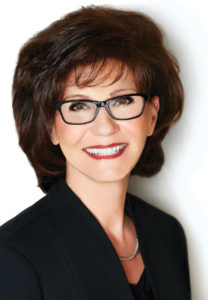
Duets: Gender Bias in Horticulture
Today’s conversation focuses on gender bias in horticulture. I’m joined by two highly respected women, Bridget Behe, Ph.D., who is an academic colleague, and Lela Kelly, a fellow horticulture industry business owner.
Bridget has earned the rank of professor at Michigan State University, where she conducts horticultural marketing research. She is a leading voice in this discipline, a frequent speaker at conferences and a prolific author.
Lela is the owner of Dosatron International based in Clearwater, Florida. She has spent her career in horticulture, agriculture and irrigation. She owned a garden center and wholesale nursery on Long Island, New York, in her pre-Dosatron years. Selling fertilizer injectors since 1981 has allowed her to visit greenhouses, nurseries and farms across North America to connect with growers and understand their needs.
Peter: Ladies, welcome to Duets, and thank you for agreeing to discuss this topic. More accurately, this installment should be titled “Trio.” Let’s begin with each of you sharing experiences and observations about the state of gender bias in our industry. Bridget, how is academia doing?

Bridget: Academia is doing a great job with getting more women into undergraduate and graduate programs in horticulture. There are nearly 50% women in the undergraduate programs/courses today but more of their challenges are in the workplace. I’ve had female students asked out on a date during a job interview. Certainly not a majority, but I do hear stories from female graduates about inappropriate language being used and (less often) inappropriate behavior.
At the graduate level, I see more women than I did 30 years ago when I was in graduate school. The challenge lies in getting them through the tenure system with all its demands and wanting to have a spouse and family. It is hard to get women to persevere through challenges unique to them (the burden of childcare still lies with the female) while contending with demands and a desire to have some modestly high quality of life AND a rewarding academic career.
Peter: You and I met during the late 1970s as graduate students at Ohio State. Issues you raise were also present back then. Congratulations, you have persevered; I know it wasn’t easy. For many men, a good behavior to practice is to listen more and speak less. This extends beyond gender bias, too; race relations and political relations also need more listening and less speaking.
Bridget: I get a sense that, for many men, being a female in their department isn’t an issue. Most will say, “I don’t do that” but many still do (and just can’t see it). Publishing using only initials has reduced some of the inherent bias, but that doesn’t get women into research groups, funding opportunities and collaborations where men still wield the bulk of the political and economic power. Blind reviews help, but often the academic circles are so small that people recognize who’s who.
Even look up the academic ladder to see how few (today or historically) female horticulture chairs/heads we’ve seen. Moving past an inability to see the problem is the start of the solution. But we must be more deliberate. Diversity is being asked to the party; inclusion is being asked to dance. Everyone needs to be more cognizant about asking younger/newer faculty to collaborate on projects, grants, consortia, boards of directors, etc.
Peter: When you shared that sentiment about diversity and inclusion with me, it stopped me in my tracks, Bridget. It’s a perfect example of how someone like me needs to just listen and learn. Instead of the knee-jerk response that we’re accepting diversity and all is fine, we need to just acknowledge we’re still coming up short on the inclusion part. Lela, what has your experience been as a private sector supply chain member?

Lela: I believe the perception women have in horticulture is that they lack experience. I do a lot of trade shows, and at shows I’m often perceived as some lady they sent from the office to fill in. I can be standing at the booth next to one of our sales “guys,” and I will greet the approaching customer, but they greet my salesman. They do not talk to me, even though I’m speaking to them. I find this comical because I have over 40 years’ experience in horticulture, including fertigation and irrigation. Once I start to interject some questions into the conversation, they finally realize I can help them. We often laugh after they leave because it’s so common. Men often underestimate women’s abilities.
Peter: Anyone who knows you, Lela, knows how absurd that behavior is. And anyone who knows you also appreciates your ability to laugh it off and flip the script while communicating with these growers. I never tire of watching you take an injector apart in a greenhouse to show the grower how to change a seal … instant respect.
Lela: I feel comfortable talking about my experiences, Peter; I was not insulted by being ignored by men. I honestly felt it was comical. I completely understand why men did that. All I hope is that things will continue to change.
My daughter Pam Temko is CEO of our company, Dosatron International Inc. Pam comes from a family of very strong Italian women. I believe this has helped her navigate the different markets we service and manage our wonderful employees. One of the markets Pam started in was the livestock market, our largest. This market is primarily made up of male farmers, similar to the horticulture market. I credit her perseverance, calm personality and extensive knowledge of that market for the success she has had.
Peter: You let the cat out of the bag, Lela, thanks. The next Duets article will also be a “Trio” with two of our industry’s next-generation women. Your daughter Pam and Molly Dishman, daughter of Dave Bartlett of Bartlett Instruments, have agreed to join me to discuss their experiences. I’m anxious to hear what they have to say on this subject.
Lela, your descriptor “very strong Italian women” is an excellent point that I’d like to explore. In recent years, I’ve read several books about human personality, specifically introversion and extroversion. I am a proud introvert and suspect Bridget has some introvert traits. However, to your descriptor and also from knowing you, I sense that you’re an extrovert.
I also spend much time thinking about my childhood and career in my family’s farm and greenhouse business. An observation from my experience is how important the position of the family matriarch is. I describe my mother in Lela’s terms; she was a very strong Armenian woman. It was no secret — she ran the show. While she didn’t go to conferences or enjoy the technical side of growing crops, her hand touched everything we did. I am in awe of what she accomplished and consider the matriarch a cornerstone of family businesses in agriculture.
Lela, you and I served together on OFA (now AmericanHort) committees and on the board of directors. Did you experience any of the bias described above in that setting?
Lela: I never felt it during my time on the OFA board. But everyone knew I owned the company, and that gave me credibility. Aside from this credibility, I strongly believe my years of experience and how I portray myself matter greatly. One trait that I believe women have is to come to the table prepared. That means do your homework. When you know your stuff you garner respect, and being prepared gives you the confidence to speak up.
It also helps to be assertive. Back to my mom, a strong Italian woman — one of her favorite sayings to me was “What’s the worst that can happen?” Most of us are afraid of things that never happen! I encourage women to take more chances, don’t let fear hold you back … ever.
Peter: Bridget, you experienced bad behavior dating back to before graduate school that forced you to think a certain way. How did those experiences shape your outlook on today’s topic?
Bridget: I guess my thought is if we don’t talk about some of these things, people will just keep on doing it; nothing will change, and there is a risk that the “bad behavior” continues. I want women to read this and be prepared for when it happens to them (not if) and I want men (especially) to read it so they become aware that we (women) don’t like it at all. We all benefit from more inclusiveness on any basis, and inclusiveness needs to be more intentional and deliberate moving ahead.
I recall a big grower that I desperately wanted to work for after my undergrad degree telling me, “You’re young and single; soon you’ll be married and pregnant, why would anyone invest in you?” It is hard/funny when others don’t see in you what you believe you see in the mirror. A good friend/mentor told me once, “What other people think of you is none of your business.”
Sexism isn’t as bad as it was 30 years ago, but it’s still strong in our field. Just look at the composition of most boards of directors or keynote speaker lists; most are older white men (and I love them, I am married to one, and have many friends/colleagues who resemble that).
Peter: It interests me that both of you referenced women mentors in your lives, as I did about my mom. If I listened … I believe you reported that progress toward eliminating gender bias has been made but much work remains. Thank you both for discussing this topic with me.


 Video Library
Video Library 




















